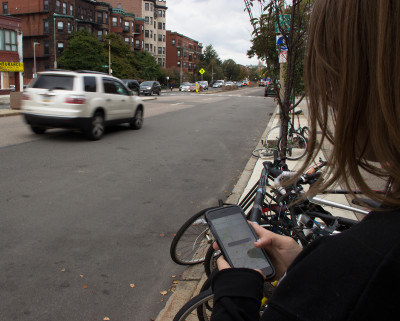 The success of Uber continues to skyrocket as the app-based car service broke a new record in Massachusetts in September, reaching a total of two million rides for residents.
The success of Uber continues to skyrocket as the app-based car service broke a new record in Massachusetts in September, reaching a total of two million rides for residents.
Carli Waibel, a spokeswoman for Uber, expressed the company’s excitement for the new record.
“Over 10,000 driver-partners have connected hundreds of thousands of riders to a safe and reliable transportation option,” Waibel wrote in an email. “Uber riders have grown to love and trust the convenience of Uber and we look forward to helping connect more Massachusetts residents and visitors to an affordable and safe ride.”
Uber, which was founded in 2009 in San Francisco, has created a vast network of drivers and riders over time.
Joseph Giglio, a Northeastern University professor with an expertise in transportation and business, described the different aspects of Uber that make it a useful tool.
“Uber created this brand that provides very fast, very clean, convenient, no cash mobility and they allow passengers to rate the system,” Giglio said. “They’re offering [this] generation the luxury choice.”
Peter Furth, a civil engineering and transit professor at Northeastern, said when the company was first founded people did not expect Uber to find such huge success.
He attributes Uber’s success to its similarities with the jitney, a popular car service from the early 1900s that cost a nickel.
“In the 1900s, there were often people at street car stops who would say ‘can I give you a ride for a nickel?’ Jitney was a slang word for nickel, so they were called jitney services,” Furth said. “With the Internet allowing the customer and driver to connect, without having the word taxi painted on your vehicle, [Uber] has recreated the jitney.”
Furth said the streetcar industry made jitneys illegal in the United States because they were not regulated, which gave rise to taxis. The government restricts the taxi industry by issuing medallions to drivers, he said, while Uber has no such limits.
“The number of people willing to give their time to make money and give people rides is a lot higher than the number of taxis,” Furth said. “It’s assumed that the taxi cars are only used as taxis and driving the taxis is the only job that the drivers have so the use of taxis is limited. There are medallions and limits on entry.”
Furth said the way that Uber has influenced the dynamic of city life for the millennial generation has been both positive and negative.
“It’s one more thing that facilitates a car-free lifestyle. It’s a good thing for a city to become more sustainable and less auto dependent,” Furth said. “On the other hand when students use it to go to a class four blocks away on a rainy day, that’s just a waste of money.”
Several residents who have used Uber said they have had varied experiences with their service.
Kyla McCartney, 31, of East Boston said she enjoys the ease of using Uber.
“I would say I prefer it to taxis,” she said. “For one thing, in Boston, they’re easier to get. It can be challenging to get a taxi. And for another, I’ve found that generally it’s cheaper to use an Uber than to use a taxi.”
Beth Jordan, 33, of Jamaica Plain, stopped using Uber six months ago because of safety concerns.
“I stopped taking Ubers just because I don’t like having a lot of apps on my phone that track a lot of personal information about me,” she said. “They have had a couple bad press things. I always take them alone and I know that they have a record of my name and when I call the driver, but just in case I stopped taking them.”






















































































































